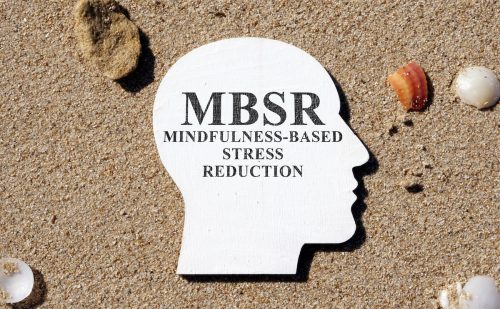11 Simple Ways to Live in the Moment And Be More Present Like Gwyneth Paltrow
Mindfulness can assist with stress, anxiety, and depression.

Goop founder Gwyneth Paltrow recently made the very on-brand announcement that she was taking a break from social media. “Going to focus on being present,” she said in an Instagram post about her sabbatical. If that aim sounds appealing to you—being more present, even if you can’t bear to give up Facebook—know that experts say it can have real mental health benefits. Actively concentrating on the present, also known as mindfulness, has been touted as an effective therapy for stress, anxiety, and depression. Here are 11 simple ways you can do it.
1
Focus on Your Surroundings

Take some time to observe what’s around you—items in a room, a view outside, people passing by—while clearing your mind of all other thoughts. Experts say practicing this technique can make you more adept at appreciating the present moment in other situations, such as a conversation with a friend or time with family.
2
Do Breathing Exercises

Mindful breathing—concentrating on your breath as you inhale and exhale—”can be a powerful tool for managing your emotions, improving your mental wellness, and learning to live in the moment,” says PsychCentral.
3
Express Gratitude

Think about five things you’re grateful for right now. Whether you just review them mentally or write them down daily—a technique experts recommend—expressing gratitude puts you in a positive mindset and can override your worries about work stress, your car payment, or the world at large.
4
Meditate

Mindfulness meditation “involves paying close attention to the present moment — especially our own thoughts, emotions and sensations — whatever it is that’s happening,” writes David Gelles in the New York Times. “Even just a few minutes a day can make a big difference.”
5
Practice Monotasking

The opposite of multitasking, “mono-tasking allows us to pay attention to a single task at a time,” explains Rolling Stone. “It teaches us the ability to stay present in the moment, lessening our work-related stress and anxieties. It can help us elevate our focus and gradually enhance our well-being.”
6
Accept Uncomfortable Feelings

Also known as radical acceptance, this is “being open to the way things are in each moment without trying to manipulate or change the experience—without judging it, clinging to it, or pushing it away,” writes Jay Dixit in Psychology Today. “The present moment can only be as it is. Trying to change it only frustrates and exhausts you. Acceptance relieves you of this needless extra suffering.” For example: If you’ve just gone through a breakup, instead of focusing on the pain, tell yourself, “I’ve just had a breakup. Feelings of loss are normal and natural. It’s OK for me to feel this way.”
7
Do MBSR

Mindfulness-Based Stress Reduction is a program developed by Jon Kabat-Zinn, Ph.D., based on traditional Buddhist mindfulness and meditation. Eight-week courses are available in-person or online from a variety of organizations.
8
Make Time for Mindful Exercise

Yoga, tai chi, and qigong are relaxed workouts that focus on breathing and the movement of the body. This can make you feel more present and connected to your body.
9
Reduce Distractions

Reducing distractions is one of the easiest ways to stay focused on the present. For example: Putting your phone away while you’re working, socializing with friends, or eating a family meal.
10
Eat Mindfully

Mindless snacking and eating at mealtimes are bad habits that have real health consequences: They can lead to overeating and obesity. Taking the time to appreciate each bite of a meal can make it more enjoyable and stave off overindulging.
11
Write in a Journal

Journaling daily can help you process the events of your day, reduce stress, and help you appreciate the present. Experts advise writing freely—jot down whatever comes into your mind without censoring yourself.














